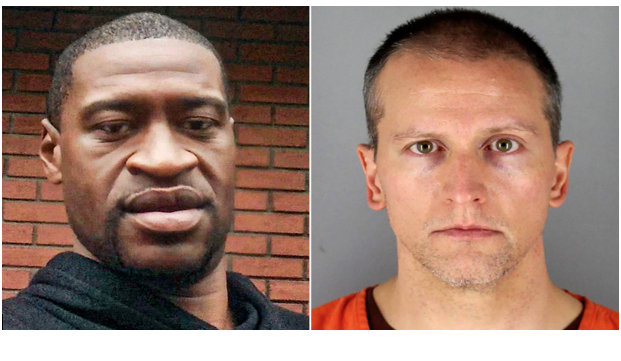CommentsVOICES-The verdict against Derek Chauvin for second and third-degree murder and manslaughter is one step toward holding police accountable for their actions, albeit in a criminal law context.
While criminal prosecutions against law enforcement officers may be rare, civil lawsuits are not.
Generally, law enforcement officers have qualified immunity, which usually prevents them from being held liable in civil lawsuits for their actions. In other words, persons aggrieved by police conduct, such as persons injured by law enforcement or their relatives, usually cannot recover damages or hold law enforcement officers civilly liable for their injuries or the death or injury of their family members.
The officers’ employers, such as a city or county, may be held liable, but not the persons committing the acts themselves. This is unfortunate because it fails to deter reckless conduct and focuses merely on whether there is a deep pocket to pay such damages to compensate the victim or the victim’s family, rather than who should be held legally and morally responsible for the wrongful conduct in the first place.
According to a recent article in the Los Angeles Times, “[o]ver roughly the past 5 ½ years, Los Angeles paid out more than $245 million to resolve legal claims involving the Police Department – more than a third of the total amount of liability payouts for the city during that period, according to a Times analysis of city records.” (“LA Will Settle 3 Lawsuits Against Police,” Los Angeles Times, April 9, 2021.)
These lawsuits are not only by third parties against the Police Department, but by police officers themselves who contend they have been wrongfully treated by the Department. Such lawsuits against the City by police officers will not be reined in until the Department polices itself, which has been a source of City frustration for many years.
But recently, numerous lawsuits have been filed against the City arising out of the conduct of police officers toward the public in various situations, including during protests following the death of George Floyd, and protests linked to the clearing of homeless encampments.
Because the vast majority of civil lawsuits are settled rather than resolved by trial – which is true for nearly all civil lawsuits because of the risks and expense of trial -- these lawsuits will almost certainly result in the payment of taxpayer money to persons claiming to be aggrieved by police conduct, rightly or wrongly.
The ability to hold law enforcement officers liable for abuses must be increased. Any person who commits a crime or a wrongful act should be held accountable for what they did.
While this may not by itself immediately decrease the payout of taxpayer monies to alleged victims or their relatives, as the officers’ employers can still be sued, it should at least add a level of accountability to the decisions made by law enforcement officers on the job. If they can also be held personally liable for their decisions – putting their own assets potentially at risk in addition to taxpayer funds – this will likely have an effect over time.
As a lawyer, I can be held accountable by my clients as to everything I do or do not do, insofar as it may affect their lives or their assets – why should the same standard not be applied to law enforcement officers? This risk to me clearly has an effect on my actions. Why should a police officer who hits a protestor with a foam projectile be protected from potential personal liability for a wrongful act if that level of response was not warranted under the circumstances?
This is one of the rationales behind the George Floyd Justice in Policing Act, which passed the House of Representatives by a 236-181 vote. Among other things, it would limit qualified immunity for law enforcement officers.
The goal is not to have law enforcement officers lose all of their assets in litigation – it is to reduce the claims and lawsuits against government entities at the outset for the actions of law enforcement officers. It is to increase accountability for one’s acts or omissions and to improve training and policing standards to prevent the conduct which could result in liability from occurring in the first place.
At the very least, the reasons why law enforcement officers cannot be held liable for their own misconduct should be closely examined and questioned.
Ending qualified immunity should result in pressure from law enforcement officers and their unions for sufficient training to allow them to do their jobs without incurring liability.
Ending qualified immunity could lead to the removal of problem officers from the chain of command curtailing lawsuits for internal mistreatment.
And ending qualified immunity could ultimately reduce the risk of people suing the City. While persons claiming to be injured by police abuses would still sue the City, the goal would be that the behavior leading to these abuses would change over time, hopefully sooner rather than later, so that the number and severity of lawsuits would be reduced.
Something has to change in order to ultimately reduce City liability. This proposal is a start in that direction.
(Carol Newman is also Los Angeles attorney. She also serves as a member of the Budget Advocates, an elected, all volunteer, independent advisory body charged with making constructive recommendations to the Mayor and the City Council regarding the Budget, and to City Departments on ways to improve their operations, and with obtaining input, updating and educating all Angelenos on the City’s fiscal management.) Prepped for CityWatch by Linda Abrams.













